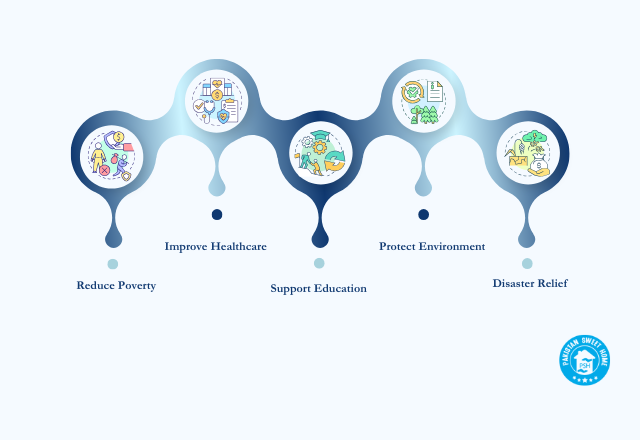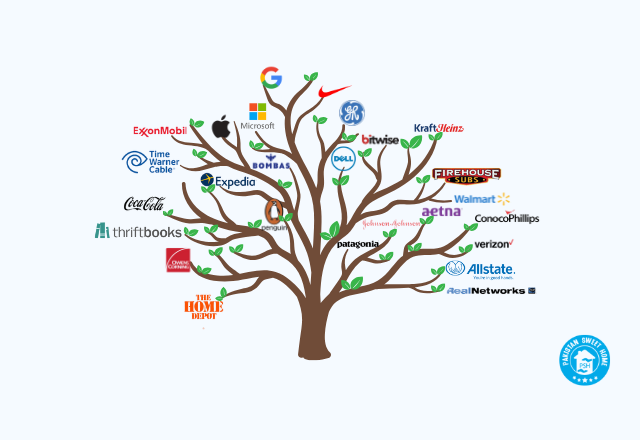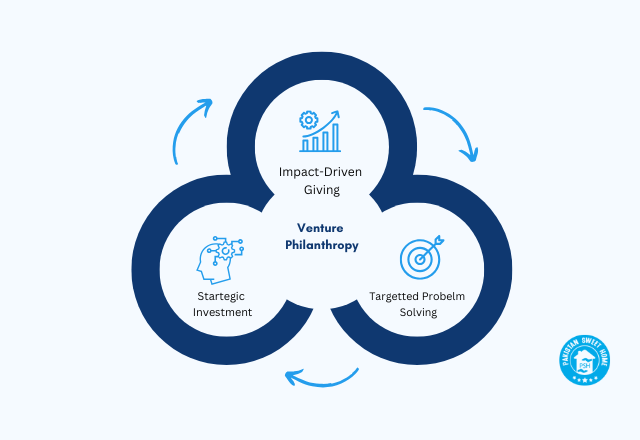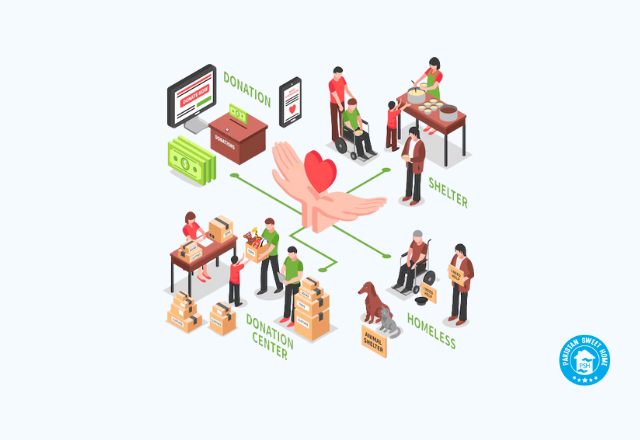
- DONATE
- SPONSOR A CHILD
- Zakat calculator
- SIGN IN
-
- About Us
- FAQ's
- Contact
- Get Involved
- Admissions
- Sign In
- SPONSOR A CHILD ZAKAT CALCULATOR DONATE
-
info@pakistansweethome.org.pk
(051) 4865856
+92 335 1118477

5 min read

Many nonprofit organizations find it hard to get support because traditional grantmaking is often long and complicated.
Funders require detailed reports and proof of a nonprofit's worthiness, which can distract organizations from focusing on their mission. This creates frustration, as nonprofits are constrained by unnecessary rules and restrictions.
The solution is trust-based philanthropy, where funders work closely with nonprofits, providing flexible support and building mutual trust. This method helps organizations thrive and leads to better outcomes for everyone involved.
Let’s dive into the details of trust-based philanthropy.
Trust-based philanthropy is an approach that fosters mutual respect, transparency, and collaboration between donors, nonprofits, and communities. Unlike traditional philanthropy, which often involves complex applications and stringent reporting requirements, trust-based philanthropy aims to eliminate these barriers.
It creates a fair power balance, allowing nonprofits to focus on their missions without excessive paperwork. At its heart, trust-based philanthropy shifts the focus from control to partnership.
By recognizing grantees as experts in their fields, funders give them the autonomy to use funds effectively. This approach empowers nonprofits and results in more meaningful and sustainable outcomes, ultimately contributing to lasting change.
Recently, trust-based philanthropy has gained significant attention, with a focus on shifting power for justice and equity while reducing the burden on nonprofit leaders. Although this approach is not in conflict with other methods, it has often been compared to strategic philanthropy.
Unfortunately, this comparison has led to a false dichotomy, suggesting that trust-based philanthropy lacks strategy or evidence-based methods, and is therefore less likely to produce results.
Consequently, some donors argue that offering unrestricted grants suggests insufficient planning regarding how funds should be spent.
Trust-based philanthropy originated from a few visionary philanthropists and foundations who saw the limits of traditional grantmaking. The Whitman Institute is a leading organization in this movement, created to promote trust-based practices.
This approach has encouraged many others in the philanthropy sector to reconsider how they work with grantees. This movement gained significant momentum with the launch of the Trust-Based Philanthropy Project in 2018.
The five-year initiative was designed to bring funders together to share knowledge and best practices.
This initiative aims to shift power in philanthropy, promoting the widespread use of trust-based principles. Funders working together are transforming philanthropic organizations to create a fairer and more effective approach to giving.
Trust-based philanthropy is grounded in six core principles. These are aimed at fostering a more balanced, respectful, and effective relationship between funders and grantees. These principles also help to build long-term partnerships that empower nonprofits to thrive.
Multi-year funding gives grantees the freedom to plan and use resources where they are needed most. This flexibility helps nonprofits adjust to changes and grow without the stress of short-term money problems.
Simplifying application and reporting processes eases the administrative burden on nonprofits. This allows them to focus more time and energy on their core mission.
Studies from the Center for Effective Philanthropy, show that excessive reporting distracts grantees from their important work. This makes streamlined processes essential for efficiency.
Open and honest communication fosters trust between funders and grantees, putting trust at the heart of their partnership. Transparent discussions help prevent confusion, while responsive communication ensures that any issues are addressed promptly, preventing them from escalating.
Funders regularly ask grantees for feedback on their work and make changes based on what they learn. This shows real commitment to working together and that funders value the input of those directly involved in the work.
Trust-based philanthropy goes beyond just funding. It includes non-monetary support like capacity building and networking opportunities, which are vital for nonprofits to thrive.
This holistic approach recognizes that grantees also need access to knowledge, strategic advice, and connections to succeed.
Funders and grantees work together to create strategies and solutions, leveraging each other’s expertise. This collaborative approach ensures that funded strategies are well-aligned with the needs of the communities.
These principles aim to create a more respectful partnership where both funders and grantees feel valued.
Trust-based philanthropy movements represent a significant shift in the approach to grantmaking. Unlike traditional methods, funders hold the power, and grantees must prove their worth through lengthy applications and reports.
The trust-based approach focuses on building real trust and removing obstacles that often hold back nonprofits from succeeding. This approach encourages funders to see themselves as partners rather than gatekeepers.
By offering flexible funding, simplifying processes, and maintaining open communication, funders can more effectively support nonprofit organizations.
Trust-based philanthropy benefits both grantees and funders by building stronger, more meaningful relationships that lead to better results.
Here are some of the benefits of Trust-Based Philanthropy:
In conclusion, trust-based philanthropy is a better and more empowering way of giving by removing the barriers of traditional methods. This model helps nonprofits focus on their mission and grow by offering long-term partnerships, flexible funding, and less paperwork.
Trust-based philanthropy fosters lasting change through core principles like open communication, collaboration, and general operating support, beyond just financial aid. These principles benefit both funders and grantees alike.

WRITTEN BY
Dr. Ayesha Khan (Community Development)
Dr. Ayesha Khan is a dedicated social worker with over 15 years of experience in child welfare and community development. As a passionate advocate for vulnerable children, she has worked tirelessly to create safe and nurturing environments for orphans and underprivileged youth. Dr. Khan holds a PhD in Social Work and has specialized in developing sustainable programs that support the holistic development of children. Through her work at Pakistan Sweet Home, she aims to raise awareness and inspire action through her insightful and compassionate writing.
Dr. Ayesha Khan is a dedicated social worker with over 15 years of experience in child welfare and community development. As a passionate advocate for vulnerable children, she has worked tirelessly to create safe and nurturing environments for orphans and underprivileged youth. Dr. Khan holds a PhD in Social Work and has specialized in developing sustainable programs that support the holistic development of children. Through her work at Pakistan Sweet Home, she aims to raise awareness and inspire action through her insightful and compassionate writing.
Top 15 Philanthropists in Pakistan: Icons of Generosity

Understanding Philanthropic Organizations and Their Role in Society

Corporate Philanthropy 101: Everything You Need to Know

28 Corporate Philanthropy Examples: How Businesses Make an Impact

Venture Philanthropy: Origin, Ecosystem, Examples, Models, & Benefits

Exploring Top 20 Venture Philanthropy Organizations

Understanding Philanthropic Responsibility
